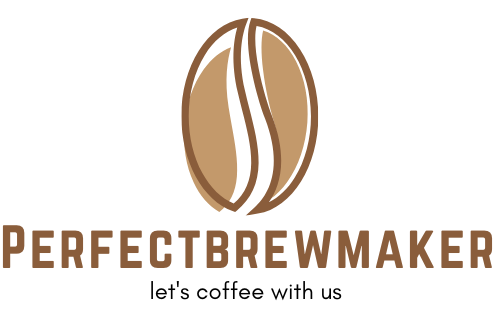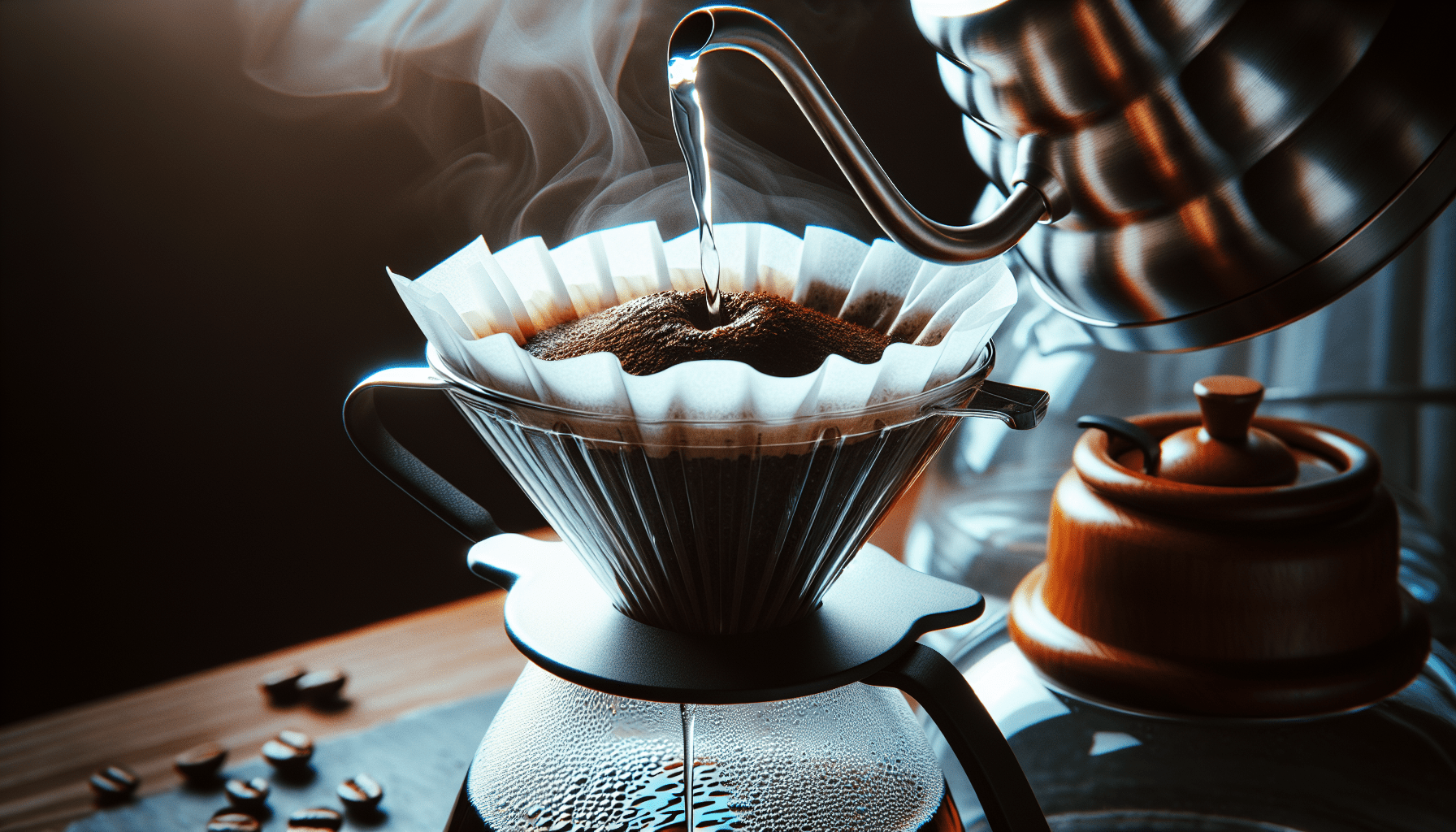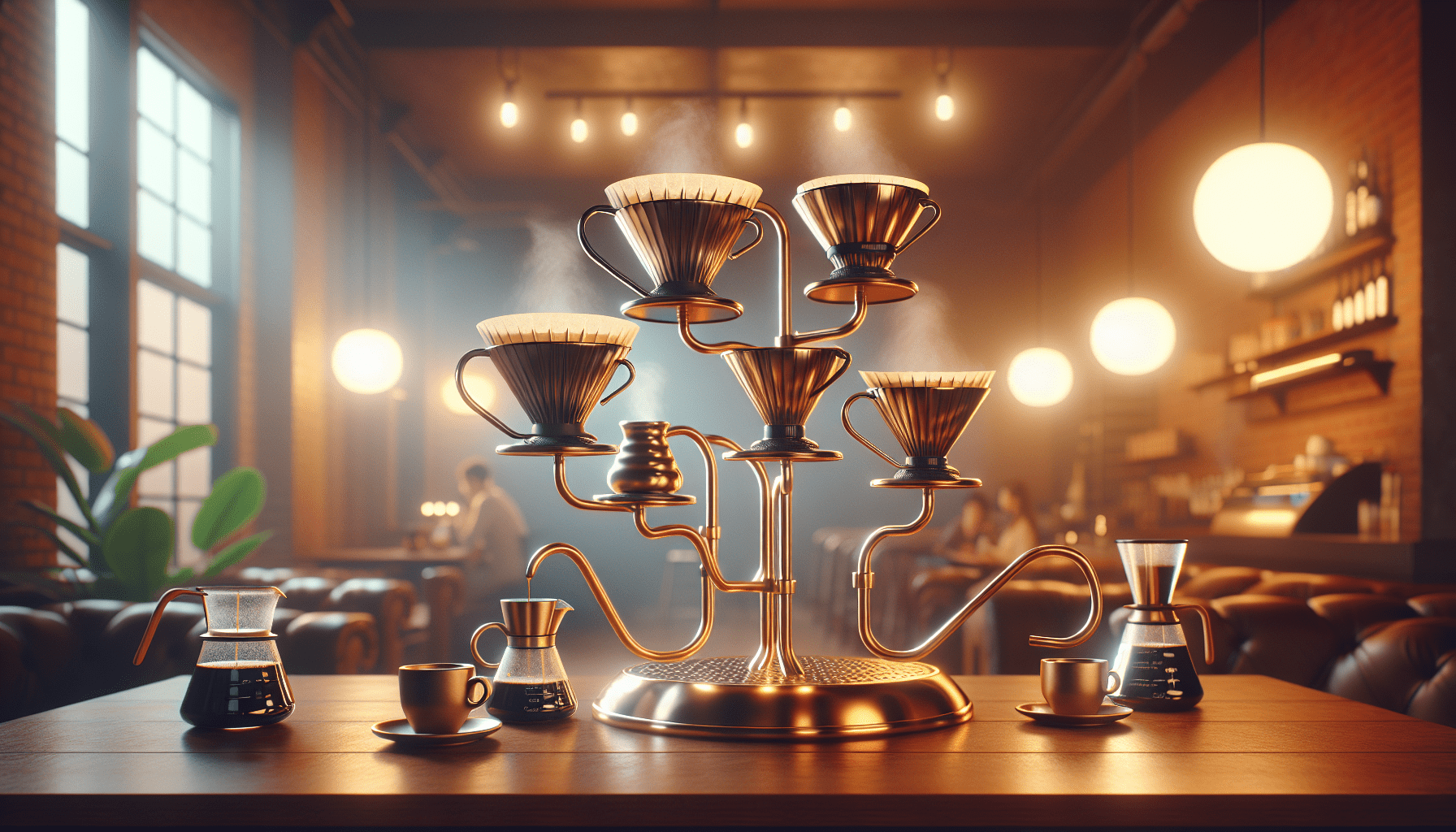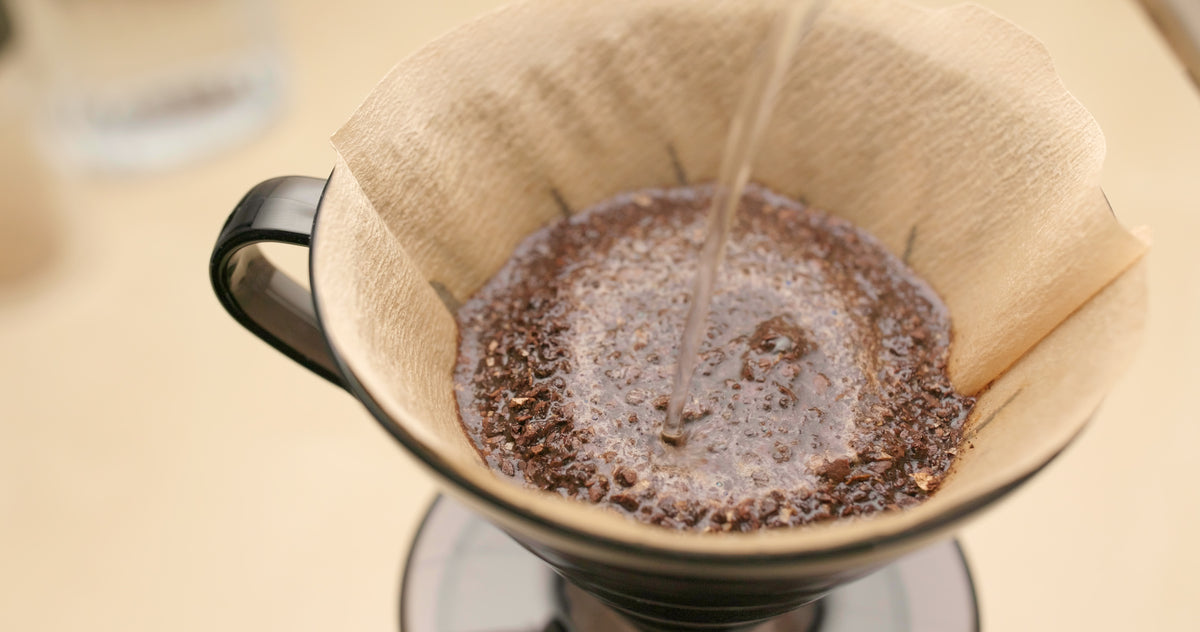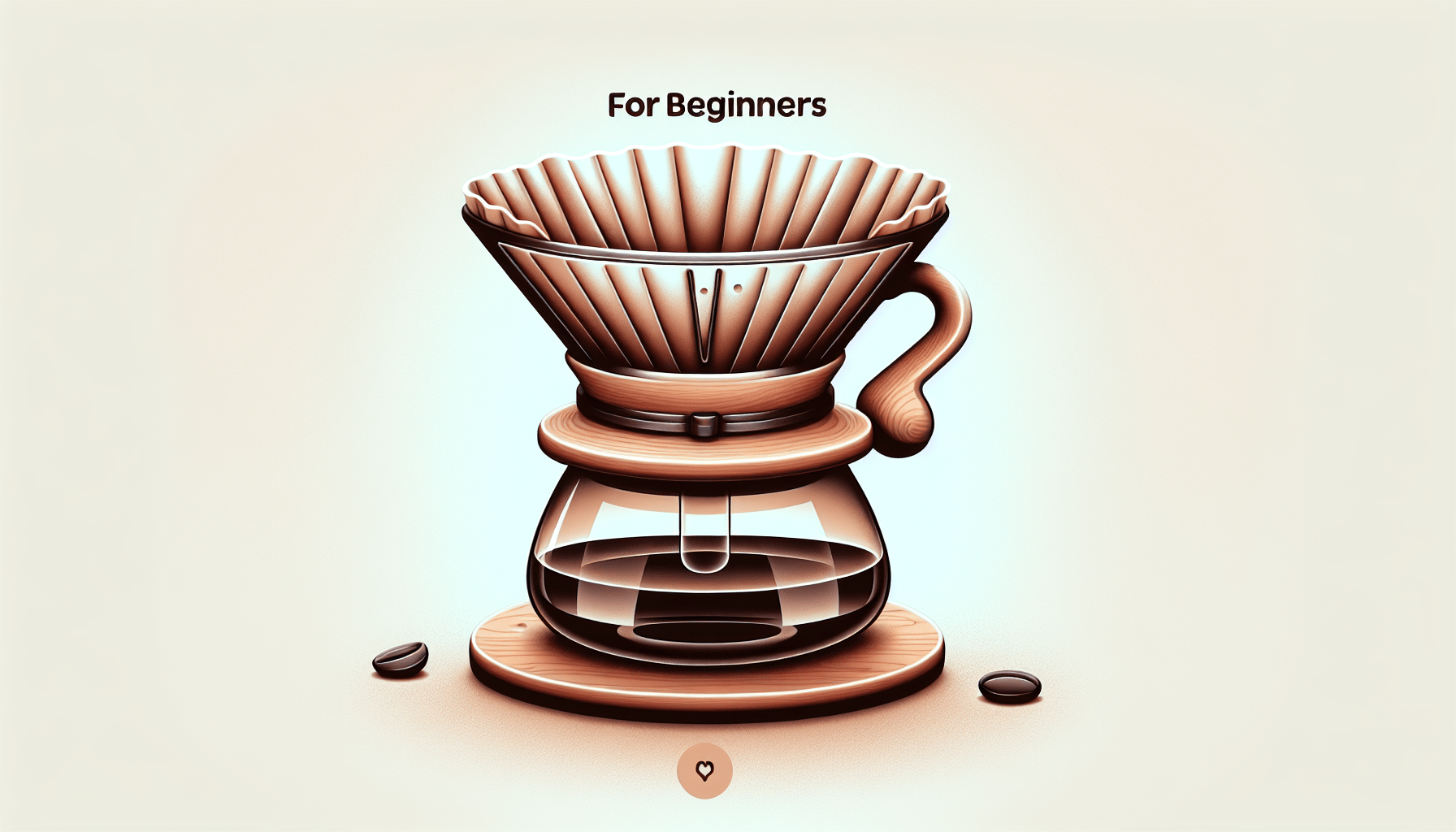If you are a coffee aficionado and the idea of a pour-over coffee maker has caught your attention, you might find yourself wondering whether you need special filters for it. So, let’s get down to beans! In this article, we will unravel the mystery of filters for pour-over coffee makers and help you decide if they are a necessary investment for your perfect cup of joe. Get ready to sip on some valuable information!
What is a pour-over coffee maker?
Definition
A pour-over coffee maker is a simple brewing device that allows you to manually brew coffee in a controlled and precise manner. It consists of a cone or dripper, which sits atop a coffee mug or carafe, and a filter placed inside the dripper. The filter holds the coffee grounds while water is poured over it, extracting the flavors and oils from the coffee.
How it works
The pour-over coffee maker works by allowing hot water to pass through the coffee grounds in a gradual, controlled manner. The water is poured in a circular motion, ensuring that all the coffee grounds are evenly saturated and the extraction is thorough. As the water passes through the grounds, it flows through the filter and into the coffee mug or carafe, producing a clean and flavorful cup of coffee.
Why use a pour-over coffee maker?
Control over brewing variables
One of the main reasons to use a pour-over coffee maker is the level of control it gives you over various factors that influence the final taste of your coffee. With a pour-over method, you can adjust the water temperature, the water flow rate, and the brewing time to your preference. This level of control allows you to experiment and fine-tune your brewing process to achieve the best possible cup of coffee.
Enhanced flavor extraction
Pour-over coffee makers are known for their ability to extract the full range of flavors and aromas from the coffee grounds. The slow and controlled brewing process allows for complete saturation of the grounds, ensuring that all the flavors are extracted. This leads to a more vibrant and flavorful cup of coffee compared to other brewing methods.
Types of filters used in pour-over coffee makers
Paper filters
Paper filters are the most commonly used filters in pour-over coffee makers. They are made of thin, porous paper and effectively remove oils and sediment from the coffee. Paper filters offer good clarity and result in a clean cup of coffee with a crisp flavor profile. They are also quite affordable and widely available.
Metal filters
Metal filters, often made of stainless steel, are an alternative to paper filters. They have small holes or mesh that allow the coffee oils and some sediment to pass through, resulting in a fuller-bodied cup of coffee. Metal filters do not impart any paper taste to the coffee, and they are reusable, making them an eco-friendly option. However, they may allow more sediment into the cup compared to paper filters.
Cloth filters
Cloth filters are less common but still used by some coffee enthusiasts. They are typically made of cotton or nylon and provide a unique brewing experience. Cloth filters allow more oils to pass through, resulting in a richer and fuller-bodied coffee. However, they require regular cleaning and maintenance to prevent any residue buildup.
Advantages of using special filters
Improved clarity and purity of coffee
Special filters, such as paper filters, have a finer mesh and better filtration properties compared to regular filters. This leads to improved clarity in the brewed coffee, removing any fine particles and sediment. The result is a cup of coffee with a cleaner taste and a smoother mouthfeel.
Reduced sediment in the cup
Special filters, especially paper filters, effectively prevent sediment and coffee grounds from ending up in your cup. This is particularly important for those who prefer a sediment-free cup of coffee. By using a special filter, you can enjoy a smoother and more enjoyable coffee-drinking experience.
Enhanced extraction of flavors and oils
Special filters, like metal filters, can allow more of the coffee’s natural oils to pass through into the cup. These oils contain the aromatic compounds that contribute to the coffee’s flavor profile. By using a special filter, you can experience a richer and more nuanced flavor in your coffee.
When to consider using special filters
Preference for a cleaner cup of coffee
If you prefer a cleaner and more pristine cup of coffee without any sediment or fine particles, using a special filter is highly recommended. Paper filters, in particular, excel in this area as they effectively remove any unwanted elements from the coffee.
Preference for a lighter body and less sediment
Those who enjoy a lighter-bodied coffee may find that using a special filter, such as a metal or cloth filter, enhances their preferred flavor profile. These filters allow some coffee oils and fine particles to pass through, resulting in a fuller-bodied cup of coffee with less clarity but more complexity.
Preference for a specific flavor profile
Special filters can also be considered based on the desired flavor profile. Paper filters are known for producing a clean and crisp taste, whereas metal filters offer a bolder and richer flavor. Cloth filters provide a unique brewing experience with their own distinctive flavor characteristics. Consider your preferences and experiment with different filters to find the one that suits your taste best.
Compatibility with pour-over coffee makers
Different filter sizes
It is important to ensure that the special filter you choose is compatible with your specific pour-over coffee maker. Different coffee makers have varying sizes of drippers and filters. Most manufacturers provide information on the appropriate filter size for their drippers, so be sure to check the specifications before making a purchase.
Wavy or flat edges
Some pour-over drippers have filter holders with wavy edges, while others have flat edges. Certain filters are designed to fit specifically with one type of edge. When selecting a special filter, consider whether it is intended for use with a dripper that has wavy or flat edges. Using the correct filter type in accordance with your dripper will ensure a proper fit and optimal brewing experience.
Material compatibility (e.g., paper vs. metal)
Along with size and edge compatibility, you should also consider the material of the filter and how it aligns with your preferences. Paper filters are disposable and provide a clean taste but contribute to waste, while metal filters are reusable and offer a fuller-bodied cup of coffee. Each material has its advantages and drawbacks, so choose the one that aligns with your values and desired brewing experience.
Popular brands/types of special filters
Hario V60 filters
Hario V60 filters are specifically designed for the Hario V60 pour-over coffee maker. They are available in both paper and metal options, allowing you to choose between a clean and crisp cup of coffee or a fuller-bodied brew. Hario V60 filters are known for their high quality and excellent filtration properties.
Chemex filters
Chemex filters are designed to be used exclusively with Chemex pour-over coffee makers. They are thicker than most paper filters and provide exceptional filtration, resulting in a clean and clear cup of coffee. Chemex filters are prized for their ability to highlight the delicate flavors and aromas of coffee.
Kalita Wave filters
Kalita Wave filters are specifically made for the Kalita Wave pour-over coffee maker. They come in both paper and metal versions, offering versatility to choose your preferred brew method. Kalita Wave filters are known for their superior extraction properties and the ability to produce a consistent and balanced cup of coffee.
Cost comparison: Special filters vs. regular filters
Price range of special filters
Special filters, such as those designed for pour-over coffee makers, can vary in price depending on the brand and material. Paper filters are generally more affordable, with a pack of 100 filters ranging from $5 to $12, depending on the brand. Metal filters, being reusable, have a higher upfront cost but can be more cost-effective in the long run.
Availability of special filters
Special filters are widely available, both online and in physical stores. Coffee specialty shops and kitchenware stores often carry a variety of filters for pour-over coffee makers. Additionally, many reputable brands have their own online stores where you can purchase filters directly.
Long-term cost implications
While special filters may have a higher upfront cost compared to regular filters, their reusability can make them more cost-effective in the long run. Metal filters, for example, can be used multiple times before needing to be replaced, reducing ongoing expenses. Consider your coffee consumption habits and budget to determine whether the initial investment in special filters is worthwhile for you.
How to choose the right filter for your pour-over coffee maker
Aesthetic preferences
Consider your aesthetic preferences when choosing a filter for your pour-over coffee maker. Paper filters are available in different colors, allowing you to add a touch of personal style to your brewing routine. Metal filters, on the other hand, often have a sleek and modern appearance, which may be more appealing to some.
Preference for flavor characteristics
Your preference for different flavor characteristics will also guide your choice of filter. If you enjoy a clean and crisp cup of coffee, opt for paper filters. If you prefer a fuller-bodied brew with more oils and complexity, consider metal filters. Take into account the specific flavor profile you desire and choose a filter that aligns with those preferences.
Durability and reusability
Consider the durability and reusability of the filter when making a decision. Paper filters are generally disposable and need to be replaced after each use. Metal filters, however, can be cleaned and reused multiple times, making them a more sustainable choice. Keep in mind that reusable filters require regular cleaning and may require occasional replacement if they become damaged or worn out.
Conclusion
In conclusion, the decision of whether to use special filters for your pour-over coffee maker ultimately depends on your personal preferences and brewing goals. If you prioritize a cleaner cup of coffee without any sediment or fine particles, special filters like paper filters are highly recommended. For those seeking a fuller-bodied and more complex flavor profile, metal filters or cloth filters offer a suitable alternative. Consider factors such as compatibility with your coffee maker, availability, cost, and desired flavor characteristics when choosing the right filter for your pour-over brewing experience. Remember, personal preference plays a significant role, so don’t hesitate to experiment and discover your perfect cup of pour-over coffee.
